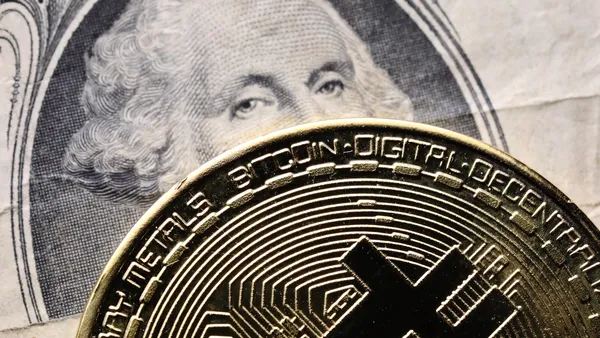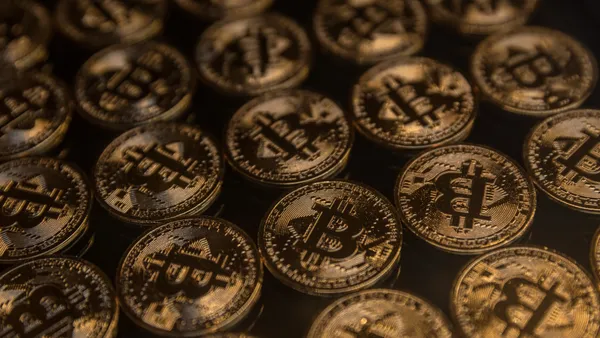Green Dot, which provides card and related financial services directly to consumers and as white-label services, is in a dispute with Uber Technologies, one of its contract customers, it disclosed last week in a regulatory filing.
Green Dot didn’t provide many details with respect to the dispute other than to allege that Uber isn’t living up to agreements between the companies.
When asked for additional information, Alison Lubert, a spokesperson for Green Dot, suggested legal action had begun. “We generally do not comment on pending litigation, but we do intend to exercise our legal rights and protect our interests in this matter,” Lubert said.
Lubert didn’t immediately respond to a follow-up question regarding where any lawsuit may be pending. An Uber spokesperson didn’t immediately respond to a request for comment.
In 2019, Uber launched a real-time earnings function for its drivers so they could access their funds after each trip rather than being limited to five cash-outs a day. The real-time offering was to run through an Uber debit account powered by Green Dot that let drivers overdraw by $100 without a penalty.
Customer contracts not renewed
Green Dot also disclosed during its quarterly earnings report that “several” of its banking-as-a-service (BaaS) customers declined to renew their contracts recently.
“We have several contracts where we could not come to an agreement that both we and our partners believe would serve the best interests of both parties and they will not be renewed,” Green Dot CFO George Gresham said during an Aug. 4 call with analysts. “We are also in the midst of a dispute with Uber over their obligations under our agreement with them. We won't be getting into the details about the specific circumstances of nonrenewals or terminations, but at a high level, I would reiterate that we are increasingly focused and more disciplined about the structure of our contracts.”
Green Dot had a similar disclosure about the lost contracts in its regulatory filing for the quarter. “During the second quarter of 2022, we also engaged in contract renewal negotiations with several BaaS partners, but after extensive negotiations, could not agree upon terms that would best serve the long-term interests of both us and our BaaS partners,” the company said in its filing Friday with the Securities and Exchange Commission (SEC).
Among the BaaS customers Green Dot has noted in the past are tech companies Apple and Intuit, online retail giant Amazon, Uber and retail behemoth Walmart, according to William Blair analyst Robert Napoli.
CEO Dan Henry suggested on the call with analysts that losing the clients isn’t a bad outcome.
“I believe that for the long term, we are striving to be probably more uniform in what we do and, long-term, we'll probably be quite OK without these partners,” Henry said.
Gresham noted Green Dot renewed one contract with a “major BaaS partner,” without providing a name. In addition, the company is making progress in discussions with Walmart, he said. That company’s contract with Green Dot expires in 2027.
While the company’s executives said the nonrenewals would have only a “modest impact” on the second half of the year, they also said it would negatively affect the forecast for next year.
Henry said the company is changing its approach in crafting contracts with clients to avoid those that can’t grow in the way Green Dot seeks to grow.
“I don't want to be out there opening up our [bank] charter for every Joe fintech that wants to do something in payments,” Henry said on the call with analysts. “We really want to be focused on partners that can be of scale, and partners that are focused on solving the problems that we're focused on solving, which is really serving consumers and small businesses that aren't very well served by traditional financial institutions for various litany of reasons.”
Walmart business
Green Dot’s relationship with Walmart could change as the retail juggernaut pursues its own financial services, Napoli said in a report.
Green Dot’s neobank, called GO2Bank, could eventually put it in direct competition with its largest retail distributor customer, Walmart. Green Dot provides the Walmart MoneyCard account services and its bank is the issuer of those card accounts.
“One of Green Dot’s core initiatives is growing its own neobank, GO2Bank, which would seemingly compete directly with the aforementioned fintech of a key partner,” Napoli noted Friday.
Business with Walmart generated about one-quarter of Green Dot’s revenue last year, but that percentage has been decreasing as Green Dot diversifies its income streams. For the first half of 2022, Walmart represented about one-fifth of overall revenue, according to Green Dot’s quarterly filing.
Of Green Dot’s three revenue segments, its biggest is its consumer business, which generated just over 40% of revenue in the first half of 2022. In that segment, GO2Bank caters to consumers who don’t qualify for standard bank services, including through retailers such as Walmart. In its third and smallest segment, Green Dot provides money transfer services such as tax refunds and cash deposits.
With the increasingly difficult macroeconomic environment, Gresham said the company expects to see some rivals pulling back, creating an opportunity for it to increase marketing in the second half of the year and lure more consumers. While that’s particularly true on the consumer side of Green Dot’s business, it could also apply to its B2B segment, he said.
Green Dot reported second-quarter net income dropped 40% to $15 million compared to the year-ago quarter as its revenue fell 2% to $362.8 million, according to its Aug. 4 press release.













